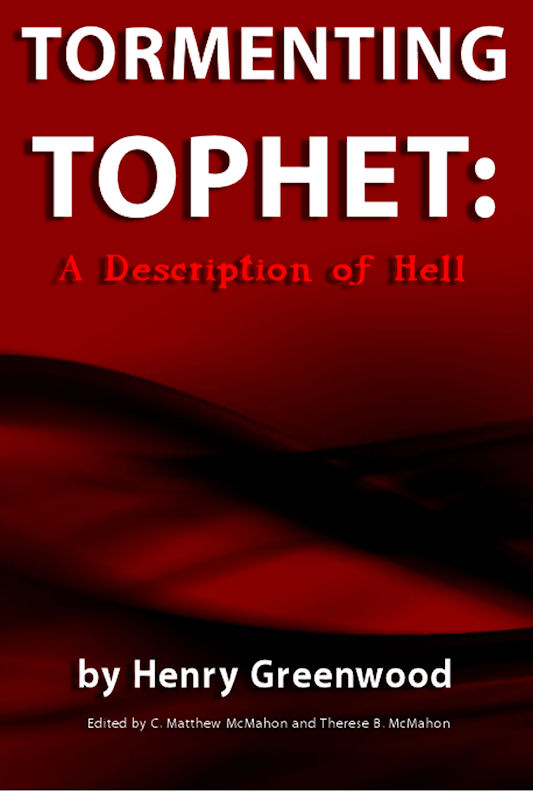Henry Greenwood (1545-1634)
An Early Calvinistic Minister, Puritan Preacher and Theologian.“Great sins require great lamentations. In hell there will be screeching and screaming, weeping and wailing forevermore.”
His Works:
Puritan Publications has published Greenwood’s amazing work on the doctrine of hell, here.
Tormenting Tophet: A Description of Hell by Henry Greenwood – eBook
Buy his printed works HERE
1. Marks and No Marks of the Kingdom of Heaven 1606.
2. Tormenting Tophet or a Terrible Description of Hell 1614.
3. A treatise of the great and generall daye of iudgement necessarie for euerie Christian that wisheth good successe to his soule, at that great and terirble day. By Henrie Greenwood, Master of Arts, and preacher of the word of God. With an addition of certaine godly prayers the contents appeare in the next page.
4. The race celestiall, or, A direct path to heaven.
5. Markes and no markes, of the Kingdome of Heauen: or, A treatise of things neccessary, vnnecessary, to the Kingdome of God.
6. The Jailors Jail-deliuery. Preached at Great Saint Maries in Cambridge, the 6. of February.
7. The blessed’st birth that euer was: or, The blessed birth of our Lord and Sauior Jesus Christ.
Biography of Henry Greenwood (1545-1634):
Henry Greenwood, a minister in Essex from 1596 to 1634, was a nonconformist Puritan and what we would call a “moderated” puritan. His beliefs are detailed in his ten published sermons but about whose career relatively little can be discovered. Of Greenwood’s origins, parentage and early schooling nothing is known. We do know that he attended St. John’s College, Cambridge in 1564. He obtained his B.A. and M.A. from the same college in 1568 and 1571 respectively, was ordained a deacon in 1571 and a minister the following year. From 1576 to 1596 he held the position of headmaster at Felsted School. Greenwood resigned from the school to accept his first cure, Hatfield Peverel, where he worked as vicar until 1605. He left Hatfield Peverel in 1605 and took up residence in Hempsted, to serve as minister to that village and to the adjoining parish of Great Sampford. In 1609 Robert, Lord Rich presented Greenwood to the living of Little Leighs in Essex but he seems to have resigned the cure soon after his appointment. Hempsted and Great Sampford he retained until 1634. Newcourt records Greenwood as resigning both livings in that year but as he was by that time eighty nine and seems never to have served another living it seems more likely that he died in residence, although this is impossible to confirm as Greenwood’s will does not survive. His second published piece Tormenting Tophet or a Terrible Description of Hell was originally preached at Paul’s Cross in London on June 14th 1614 and his final work Marks and No Marks of the Kingdom of Heaven was dedicated to Robert Levystone, gentleman of the bedchamber for his “kind respect in court and country” demonstrating that Greenwood had received favored treatment from at least one of the King’s inner circle.
Greenwood’s first book was published in 1606 and subsequent works appeared at regular intervals over the next twenty eight years. Furthermore, a total of thirteen editions were produced of Greenwood’s Workes, both during his lifetime and after his death. The earlier versions contain only five sermons and the later ones eight but the individual texts are almost identical from one edition to the next.
Mary-Millicent Egan has an article online that covers much of what Greenwood taught in his sermons, and some of his changed views concerning nonconformity later in life. It can be found here.




